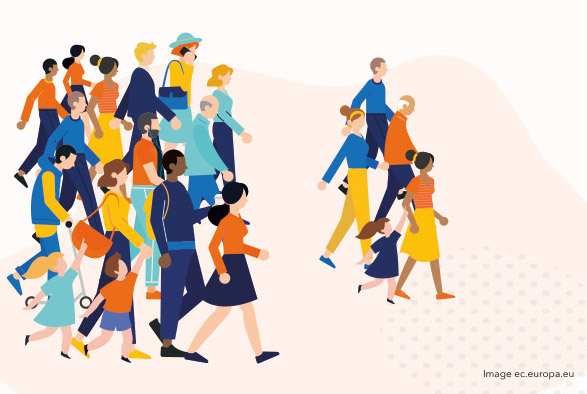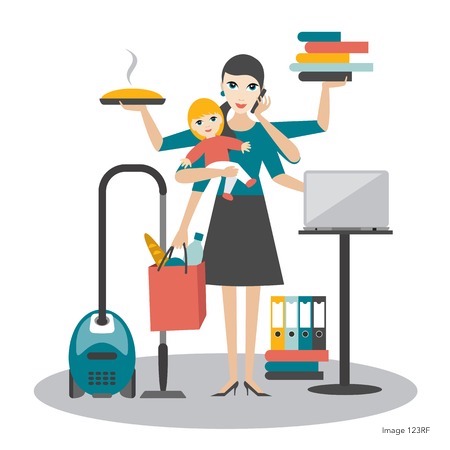Why women in retirement age deserve EU’s attention – MMM’s answer to the EU Public Consultation on Ageing and Demographic Change
28.05.21
The resulting Public Consultation initiative aims at gathering feedback from stakeholders on the challenges and opportunities of demographic ageing, taking a life-cycle approach based on intergenerational solidarity, as described in the Green Paper.

Make Mothers Matter (MMM) participated in the EU Public Consultation on Ageing and Demographic Change, which was launched in January 2021 following the presentation of a Green Paper[1] on Ageing by the Vice-President of the European Commission in charge of Demography and Democracy, Dubravka Šuica. Mrs. Šuica, was appointed, notably with the mission to present a Green Paper on Ageing and to launch a broad debate on long-term impacts, such as on care and pensions.
The Paper is based on the findings of the Report on the Impact of Demographic Change published by the European Commission in June 2020. It further sets out the key issues related to ageing and discusses possible ways to anticipate and respond to the socioeconomic impact of Europe’s ageing population.
In the Consultation, MMM answered very precise thematic questions and also made the below recommendations:
 Recommendations for women to enjoy a lifelong adequate standard of living
Recommendations for women to enjoy a lifelong adequate standard of living
- Implement employment policies providing for better jobs – not necessarily for more jobs – with guaranteed minimum income as well as flexibility to organise career breaks in order to support children, elderly and disabled family members without being penalized both in terms of income and pension schemes.
- Redefine ‘work’ as a holistic concept combining both paid and unpaid work.
- Introduce ‘care credits’ to offset breaks from employment taken in order to provide informal care to family members and periods of formal care leave, such as maternity, paternity and parental leave, and to count those credits towards pension entitlements fairly.
- Undertake studies on EU pension systems across Member States, taking into account gender differences in health conditions and life expectancy, the rise of single parents, and differences in women’s personal situations.
- Monitor the evolution of EU pension policies across Member States in the light of the COVID-19 economic consequences and of the increasing representation of the elderly within the EU population.
Recommendations to promote new upbringing and intergenerational solidarity
- Grant a bonus per child in order to promote active population renewal
- Foster flexible solutions that give parents a real choice between formal, informal, or semi formal childhood care and education.
- Recognize skills acquired during work breaks to be a family carer, and provide the possibility of training to re-access the labour market after a long home caring period. Experienced retired people can take an active part in such training programmes.
- Develop intergenerational co-housing projects in which housing costs can be shared among people living under the same roof, and in which the elderly can support younger generations with children, and vice-versa. In the light of increasing EU cross-border migration, community housing helps prevent loneliness and creates new social bonds within society.
 The EU Commission has put demography high on the EU policy agenda, taking into account the UN 2030 Agenda for Sustainable Development and UN Decade for Healthy Ageing Competences. The challenges of an ageing population are largely in the hands of Member States. However, the EU has an important role to play in identifying key issues and trends and supporting action on ageing at national, regional and local level. It can help Member States and regions develop their own policy initiatives, thereby engaging young and older EU citizens in a dynamic society.
The EU Commission has put demography high on the EU policy agenda, taking into account the UN 2030 Agenda for Sustainable Development and UN Decade for Healthy Ageing Competences. The challenges of an ageing population are largely in the hands of Member States. However, the EU has an important role to play in identifying key issues and trends and supporting action on ageing at national, regional and local level. It can help Member States and regions develop their own policy initiatives, thereby engaging young and older EU citizens in a dynamic society.
The New EU Gender Equality Roadmap : A Call for Inclusion of Mothers
04.03.25
The European Commission’s initiative on a new Gender Equality Roadmap post-2025, marks a significant step forward in addressing gender disparities across the European Union. Make Mothers Matter (MMM
Breaking the Cycle: Gender Equality as a Path to Better Mental Health
18.03.25
The Council of the European Union has taken a decisive step in recognising the vital connection between gender equality and mental health.
Europe Must Listen to Mothers: Our landmark report heads to the European Parliament
28.08.25
On 22 September 2025, the voices of mothers will take centre stage in Brussels. For the first time, Make Mothers Matter (MMM) will present its State of Motherhood in Europe








